Nowadays, marketing is more than just coming up with creative ideas. It’s about using the right tools to implement those ideas quickly and properly.
As more and more tools come out, it’s important to evaluate the ones that will be useful. That’s what we’ll be doing in this blog. Let’s discuss the various types of marketing tools that one should look for, along with some recommendations.`
Importance of marketing tools
Before we look at the different marketing tools, it’s important to understand why using them is important in the first place.
Saves time: One of the most important things for any marketer is time, and using marketing tools is a great way to save time as they accelerate and automate several processes.
Provides insight: Marketing strategies must be built and backed by reliable research data, which can be hard to find manually. This is where some marketing tools come in place and help with all the insights required to take data–driven decisions.
Automation: Marketing tools can automate repetitive and time-consuming tasks such as social media posting and email marketing, saving marketers time and effort.
Easier management: Finally, marketing tools can help marketers manage and track campaigns more efficiently, making it easier to stay organised and on top of multiple projects.
Now that the importance of having marketing tools is clear, let’s jump and start exploring the best ones.
Email marketing
Email marketing is one of the simplest and most affordable marketing practices that is known to give the highest return on investment.
To start with email marketing, you’d need a dedicated email marketing tool called ESP (email service provider). They can be used to send regular newsletters, occasional marketing emails, onboarding emails, and more.
Benefits of email marketing:
- Cost-effective: Email marketing is one of the most cost-effective marketing strategies, with an average ROI of 36X, according to Litmus.
- Automated: A big benefit of email marketing is that it can be easily automated in most scenarios. Most email marketing tools nowadays come with automation support, using which emails can be sent based on predefined triggers.
- Increased engagement: Email marketing can help increase engagement with customers and prospects, building brand loyalty and trust over time. It’s also a great way to bring customers back to the platform by sending promotional emails.
There are a lot of email marketing tools out there, but only a handful are actually good. Let’s go through the best ones.
EmailOctopus
EmailOctopus is an ESP (email service provider) popular for being affordable and simple to use. Using EmailOctopus, you can easily automate cart abandonment emails, newsletters, and other marketing emails. It can also be integrated with tools like Shopify and Google Analytics to extend its capabilities.
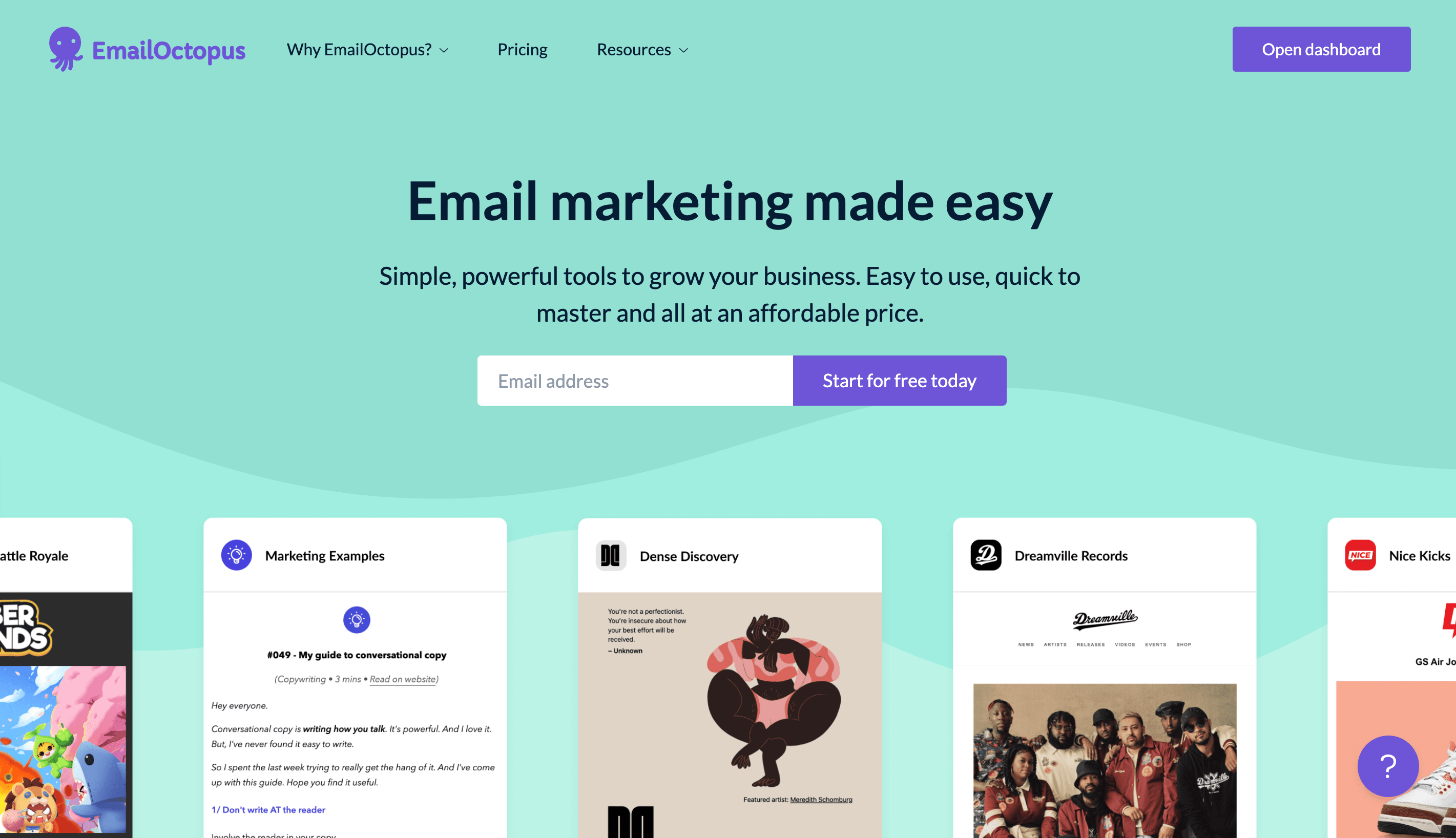
Popular features of EmailOctopus:
- Email automation
- No-code email, form, and landing page builder
- Segmentation
- Friendly support
Pricing: EmailOctopus has a free plan that allows you to send 10,000 emails to 2,500 subscribers. The Pro plan for 2,500 subscribers will cost you $14/mo., which comes with a few additional features.
Web analytics
Web analytics is one of the best ways to find out how users interact with your website and also track how your website’s marketing campaigns are doing over time. By using web analytics tools, businesses can make data-driven decisions to improve their website design, content, and marketing strategies and ultimately drive more traffic and conversions.
Benefits of web analytics:
- Tracking marketing performance: By monitoring website traffic and engagement metrics, you can track your website’s marketing performance over time and identify opportunities for improvement.
- Measuring marketing campaigns: Web analytics tools can also help you measure the effectiveness of your marketing campaigns by tracking the source of website traffic and user behaviour, such as tracking clicks coming from ads or emails.
- Identifying user segments: Some web analytics tools like Google Analytics also let you build segments based on several metrics, which can give a broad understanding of what types of traffic convert.
Now that the benefits are clear, let’s go through the best web analytics tools to choose from.
Google Analytics
Google Analytics is one of the most popular web analytics tools that businesses of all sizes and types use.
One can easily track metrics such as pageviews, users, conversions, e-commerce sales, and much more using Google Analytics. It can also be connected to tools like Google Ads, EmailOctopus, and many more to get more detailed metrics.
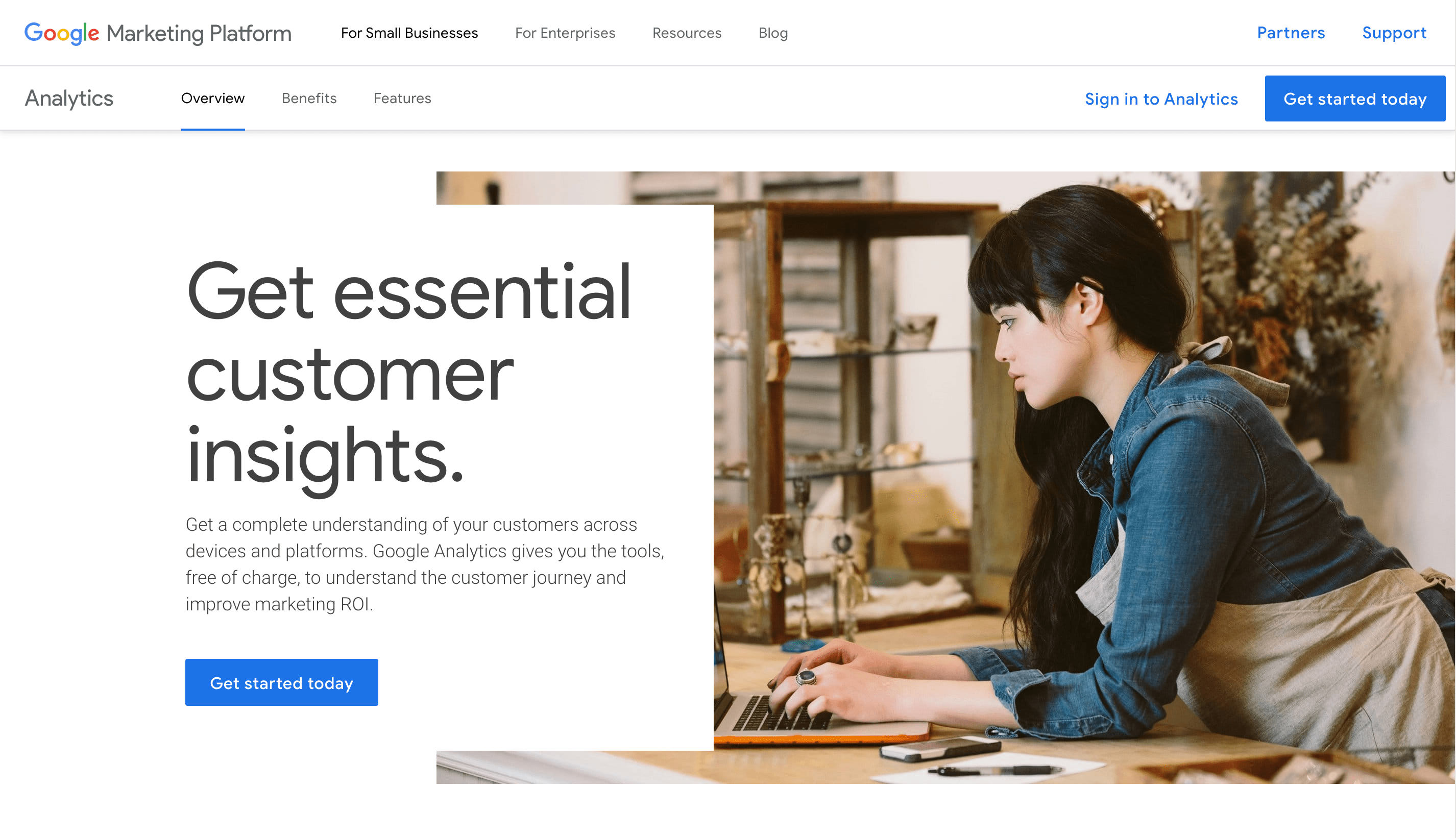
Popular features of Google Analytics:
- Web traffic tracking
- E-commerce tracking
- Events tracking
- Ads tracking
Pricing: Free.
Simple Analytics
Google Analytics has some big problems. The biggest ones are that it’s non-compliant with some privacy laws and has a confusing dashboard. Simple Analytics aims to solve that by providing a privacy-focused alternative that comes with a simplified UI.
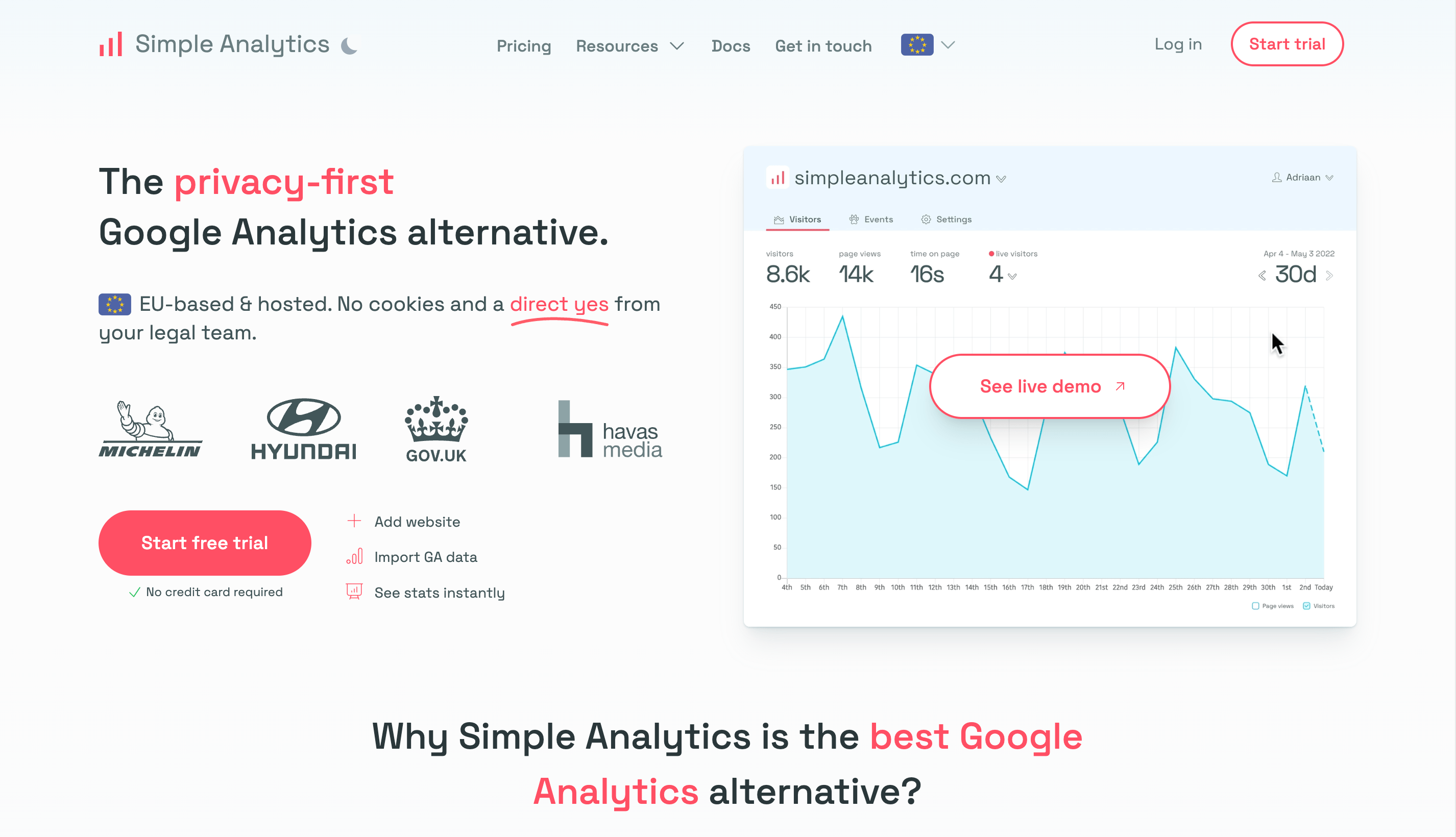
Popular features of Simple Analytics:
- Web traffic tracking
- Events tracking
- Ability to create custom goals
Pricing: Starts at $9/mo. when paid annually or $19/mo. when paid monthly.
Heatmap
Heatmap tools are similar to web analytics tools but come with a different approach to what data is collected and how it’s visualised.
Once a heatmap tool is installed on your website, you will be able to see the complete movement of all your visitors, which gives an idea of how your website is being used. This data is helpful in optimising the website layout for better conversion based on user interaction.
Hotjar
Hotjar is one of the most popular website heatmap tools, which has been slowly transitioning into behavioural analytics. It also doubles up as a feedback and survey tool.
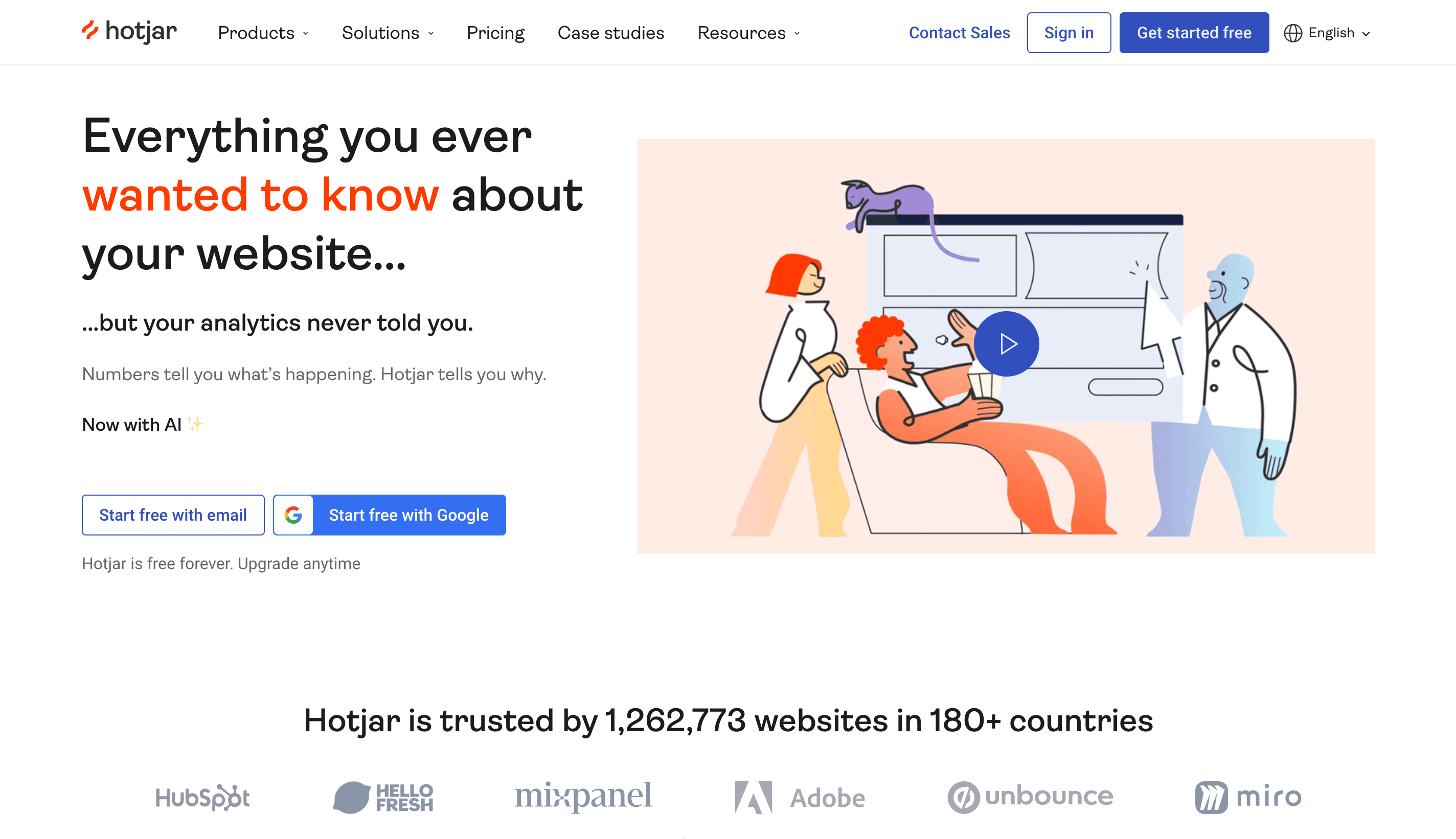
Popular features of Hotjar:
- Heatmap
- Session recording
- Feedback widget
- In-app surveys
Pricing: Hotjar comes with a free plan that allows you to 35 sessions per day for free. The paid plan starts at $39/mo. for up to 100 daily sessions.
Clarity by Microsoft
Clarity is a Hotjar alternative by Microsoft, which comes with all the core features of Hotjar and is totally free.
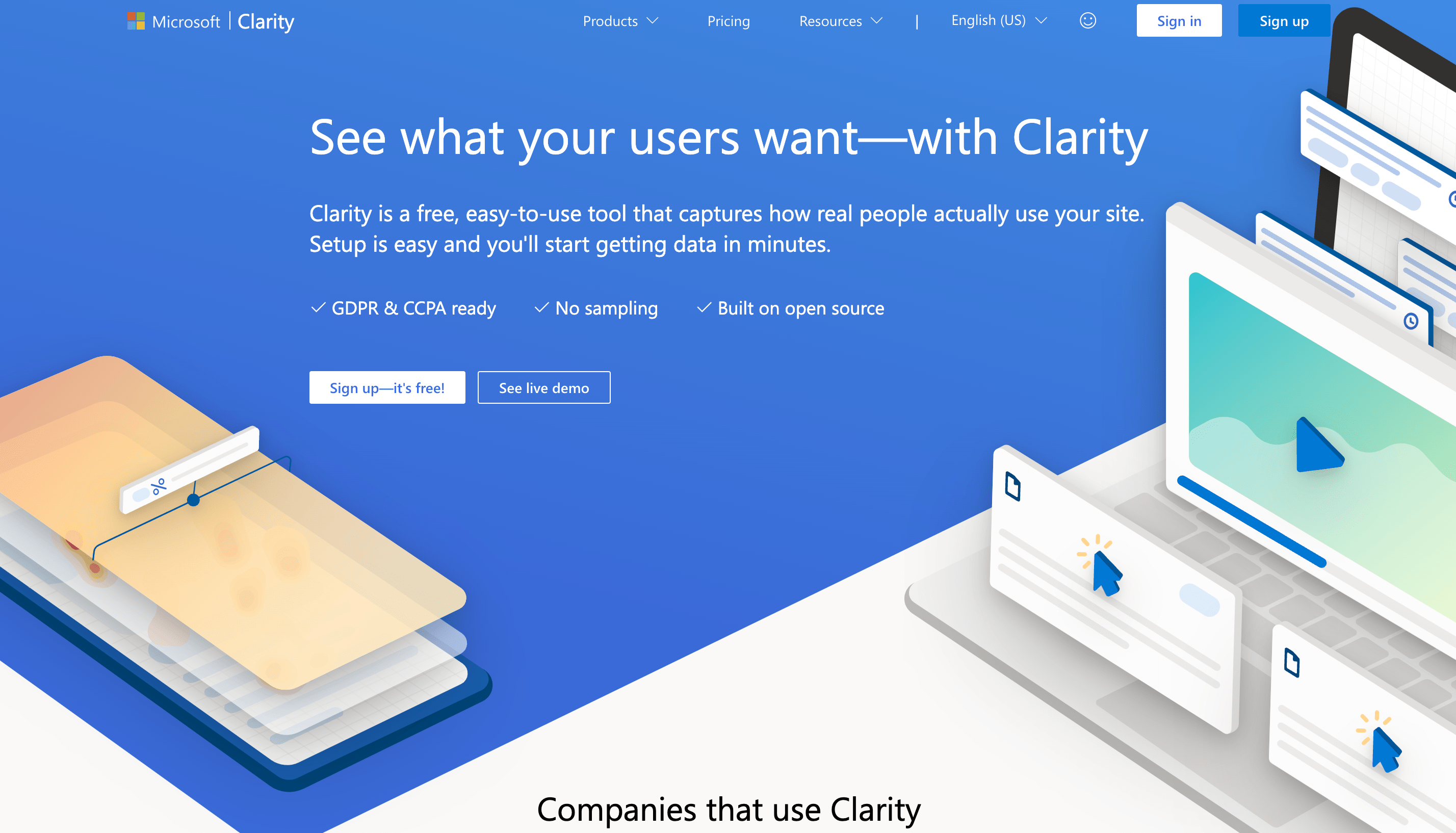
Popular features of Clarity:
- Heatmap
- Session recording
- Integrated with Google Analytics
Pricing: Free.
SEO
Search Engine Optimisation (SEO) is one of the biggest organic marketing channels which everyone should focus on. The primary goal of SEO is to increase organic (non-paid) traffic to a website by making it more attractive and relevant to search engines like Google, Bing, and Yahoo.
There are hundreds of SEO tools out there, and new ones are coming out daily, but not all of them are useful. Let’s go through the best ones that everyone should give a try.
Google Search Console
Google Search Console is a free web service provided by Google that allows you to track your website’s performance in Google search results. It provides information on keywords that drive traffic to the website and any errors or issues that may affect the website’s search engine ranking.
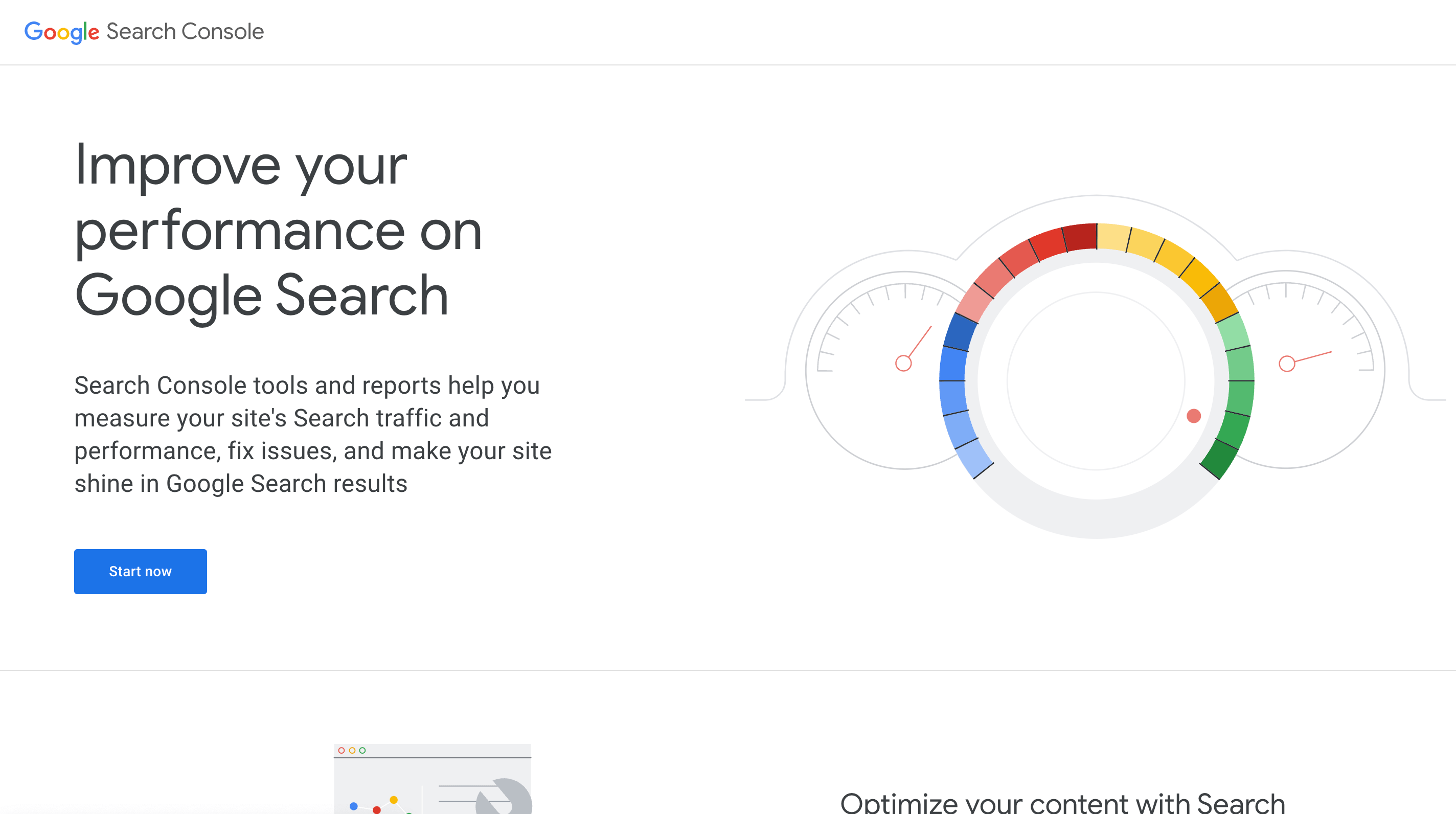
By using Google Search Console, you can optimise your website’s content and structure to improve its visibility in search results.
Pricing: Free.
Ahrefs
Ahrefs is a popular SEO tool that provides website analysis, keyword research, backlink analysis, and competitor analysis. Many marketers and SEO professionals use it to improve their website’s search engine ranking and visibility.
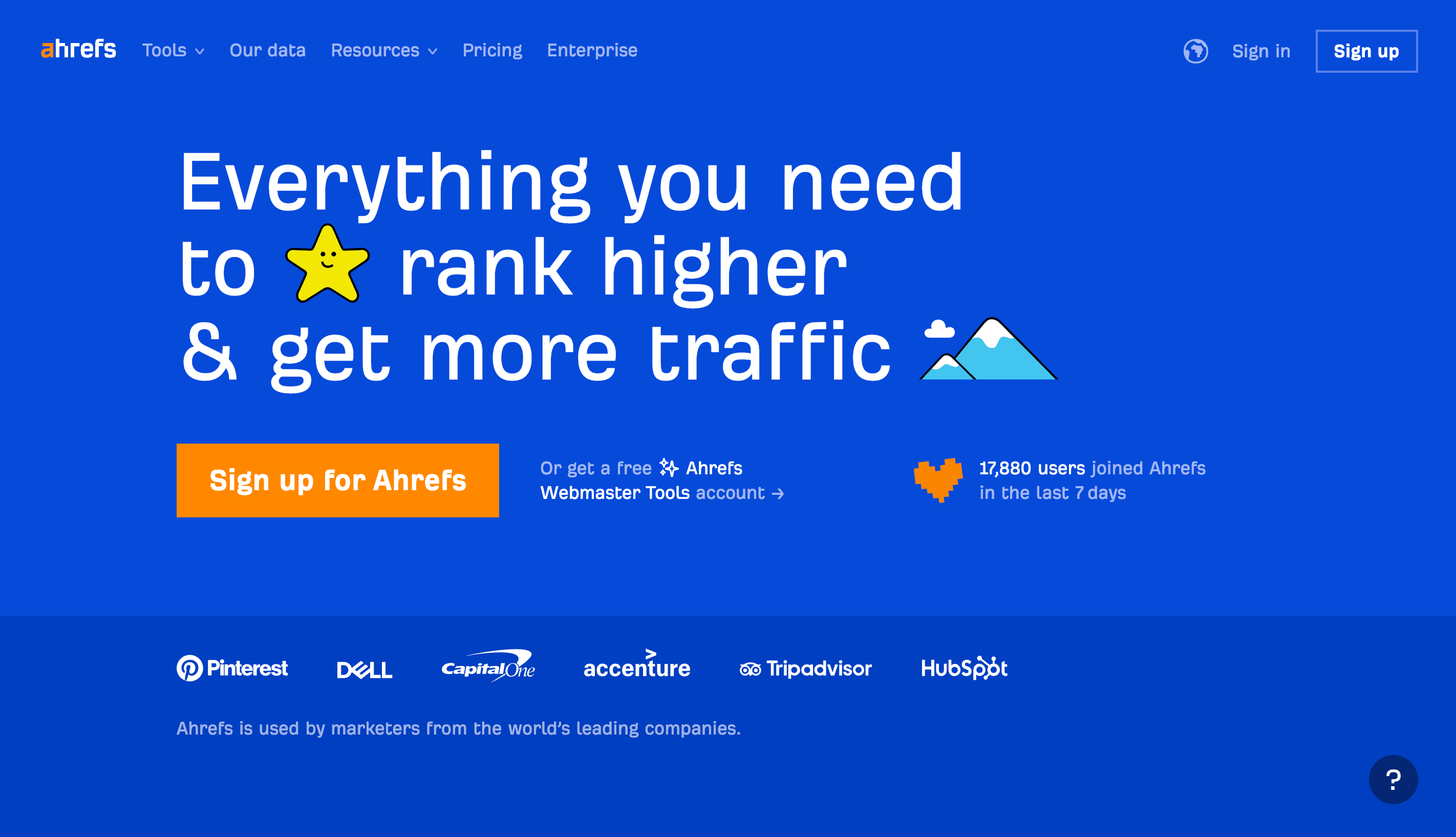
Popular features of Ahrefs:
- SEO audit
- Keyword research
- Rank tracking
- Competitor analysis
Pricing: Ahrefs comes with a limited free plan, but most features can only be accessed after upgrading to their paid plan, which starts at $99/mo.
Grammarly
Grammarly is a cloud-based content assistant that helps you write error-free content and also suggests changes to improve clarity. Even though Grammarly isn’t an SEO tool, it makes content easier to read, which is important when using content marketing for SEO.
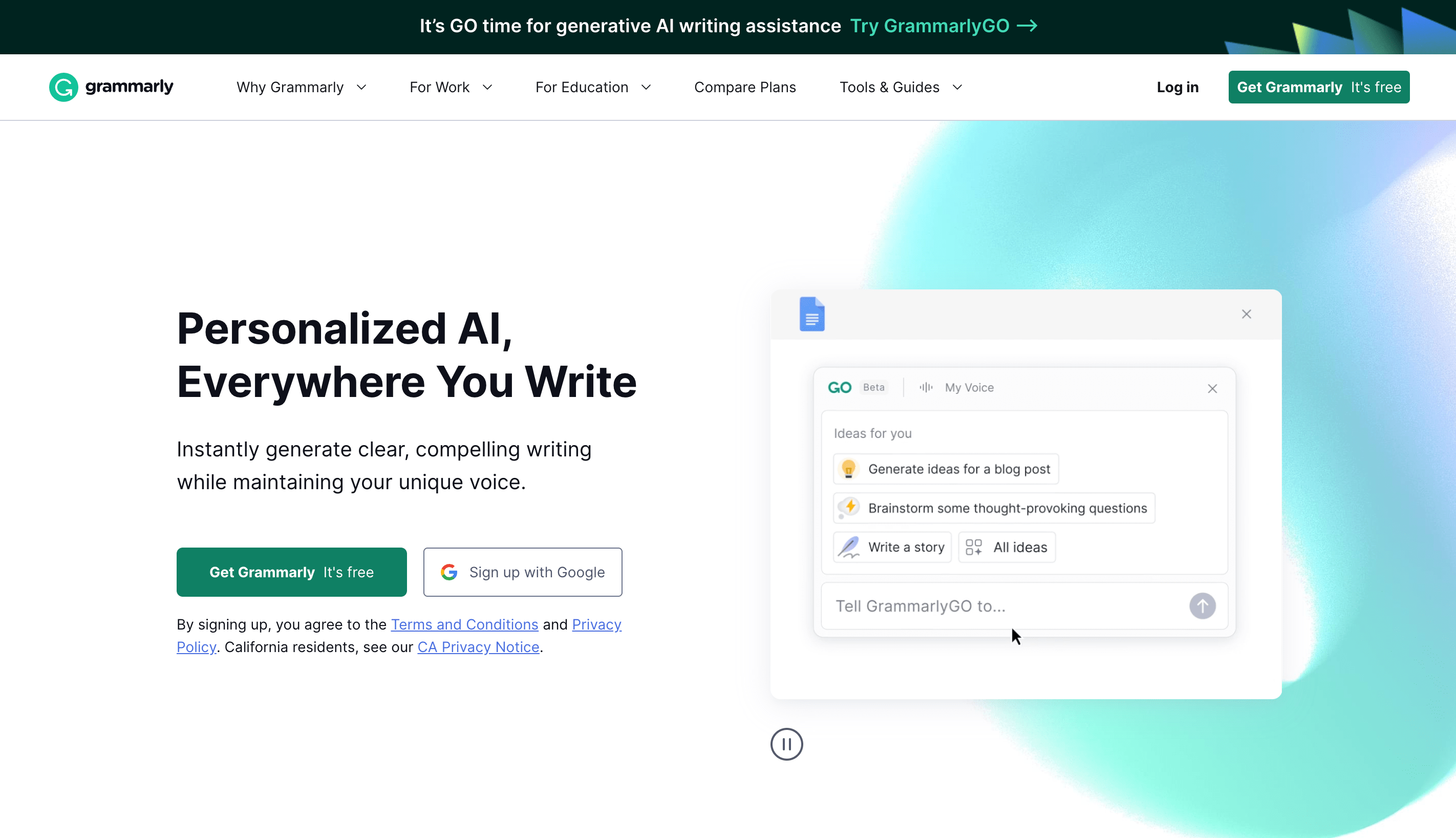
Pricing: Comes with a generous free plan, and the paid plan starts at $12/mo.
Conclusion
To sum up, marketing tools play a crucial role in the success of any business. They save time and provide valuable insights, automate repetitive tasks, and make the overall process much smoother.
From email marketing to web analytics and SEO, there are numerous tools to choose from depending on your business needs and budget. Evaluating each tool before investing in it is important to ensure it meets your requirements and provides a good return on investment.

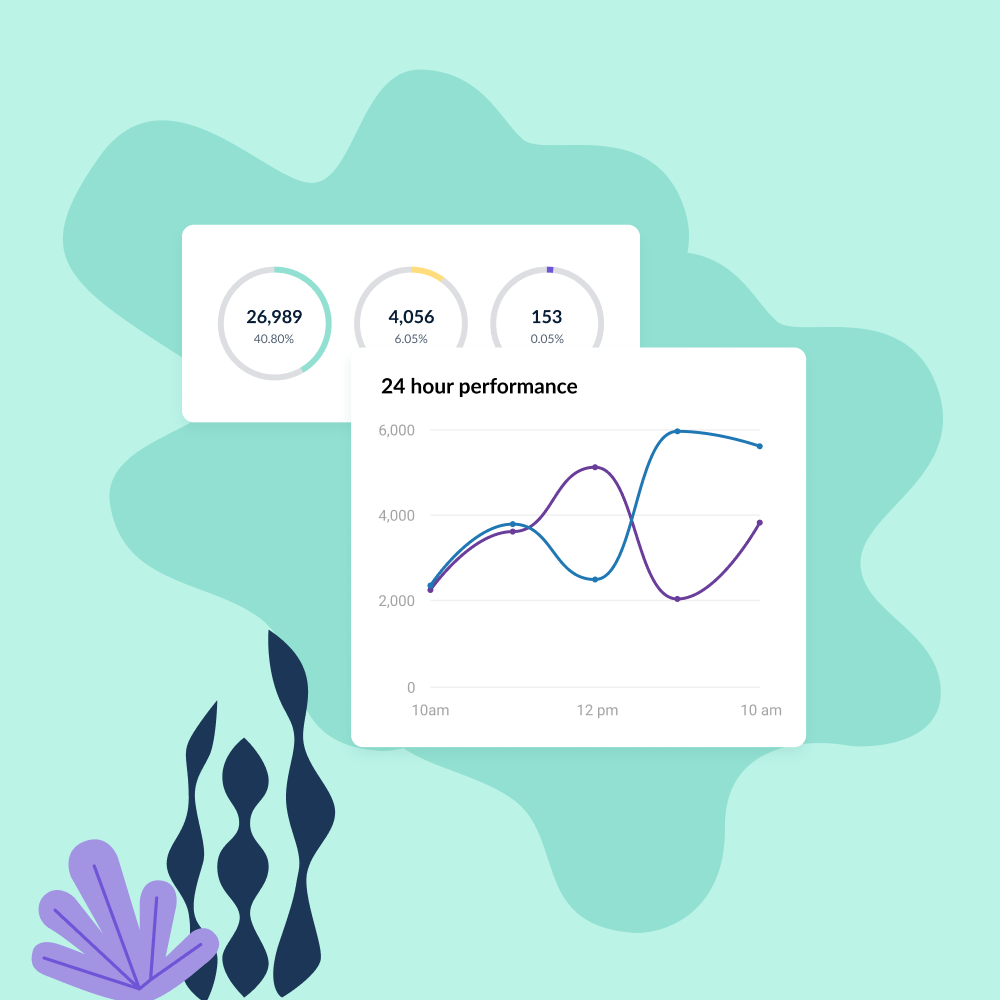
No Comments
Leave a comment Cancel